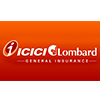 POSPsupport@plindia.com
POSPsupport@plindia.com POSP Login
POSP Login
 POSPsupport@plindia.com
POSPsupport@plindia.com POSP Login
POSP Login
Tax Benefit U/S 80C and 10(10D)*
1 Crore life cover at ₹490/month*
 Bajaj Life - Smart Protect Goal
Bajaj Life - Smart Protect Goal
 HDFC Life - Click2 Protect Life
HDFC Life - Click2 Protect Life
 ICICI Life - iProtect Smart
ICICI Life - iProtect Smart
* Disclaimer: The benefits outlined are generic and may vary depending on your age, risk profile and other applicable factors.
Tax Benefit U/S 80C and 10(10D)
Lock upto 6%* Tax-free Guaranteed Returns
It is a non-participating, non-linked, savings plan that offers guaranteed returns for you and your family.
 HDFC Life Sanchay Plus
HDFC Life Sanchay Plus
 HDFC Life Sanchay Par Advantage
HDFC Life Sanchay Par Advantage
 ICICI Pru Guaranteed Income for Tomorrow
ICICI Pru Guaranteed Income for Tomorrow
 ICICI Future Perfect
ICICI Future Perfect
 ICICI Pru Lakshya Lifelong Income
ICICI Pru Lakshya Lifelong Income
 Bajaj POS Goal Suraksha Plan
Bajaj POS Goal Suraksha Plan
 Guaranteed Income Goal
Guaranteed Income Goal
 Flexi Income Goal
Flexi Income Goal
* Disclaimer: The benefits outlined are generic and may vary depending on your age, risk profile and other applicable factors.
Tax Benefit U/S 80D. Affordable plans starting at Rs. 300/month*
 HDFC Ergo
HDFC Ergo
 ICICI Lombard-
ICICI Lombard-
 Bajaj Allianz
Bajaj Allianz
** Cashless treatments are subject to IRDA Rules. Certain item considered as Non-Medical Expenses are not allowed. Click here to see the list of non-medical expenses. IRDA List of non-medical expenses
* Disclaimer: The benefits outlined are generic and may vary depending on your age, risk profile and other applicable factors.
Affordable plans
 HDFC Ergo
HDFC Ergo
 ICICI Lombard
ICICI Lombard
 Bajaj Allianz
Bajaj Allianz
* Disclaimer: The benefits outlined are generic and may vary depending on your age, risk profile and other applicable factors.
Affordable plans
 HDFC Ergo
HDFC Ergo
 ICICI Lombard
ICICI Lombard
 Bajaj Allianz
Bajaj Allianz
* Disclaimer: The benefits outlined are generic and may vary depending on your age, risk profile and other applicable factors.
An insurance policy protects you against financial losses. As such, the policy becomes necessary. If you have a car or a bike, buying a motor insurance policy is mandatory as per law. Even in case of life insurance, the security given by a life insurance policy is unparalleled which makes the policy a must buy. When it comes to health insurance, one cannot ignore the high medical costs which are associated with a health ailment. Having a health insurance policy, therefore, makes sense to protect against the financial implication of any medical emergency.
Life insurance plans cover the risk of dying too early. Health insurance plans, on the other hand, cover the risk of medical contingencies. While life insurance plans pay a benefit in case of death or maturity, health insurance plans pay a benefit if the insured suffers a medical contingency which is covered by the plan.
Premium is the cost of insurance. It is the money which you undertake to pay to the insurance company in return for the coverage which the company provides.
Different insurance plans have a different coverage tenure. The tenures of various plans include the following -
Life insurance - 5 years to 35 years
Health insurance - 1 year to 3 years
Bike insurance - third party plans - 1 year to 5 years; comprehensive plans - 1 year to 3 years or 5 years
Car insurance - third party plans - 1 year to 3 years, comprehensive plans - 1 year or 3 years
You can buy insurance online or offline. The offline medium includes contacting the agent or distributor of insurance companies or visiting insurance companies physically to buy the policy. The online medium, on the other hand, is simpler. You can buy any type of insurance plan from the comfort of your home or office if you use the online mode. The policy can be bought from the website of the insurance company directly or from the website of an insurance broker or aggregator like us.
Insurance policies can be purchased online after comparing the different policies and then choosing the best one. After the policy is chosen you need to fill an online proposal form, submit the required documents and pay the premium online and the policy is issued.
There are a lot of insurance policies available in the market each of which satisfy similar needs and yet have different coverage benefits and premium rates. The best insurance policy which provides the best coverage features at the lowest premium rates can be found only when the different plans are compared with each other. That is why comparing is necessary before buying insurance policies.
A claim is said to occur when the insured event happens and the insurance company becomes liable to pay the compensation for the financial loss suffered by the insured.
Yes, insurance claims can be rejected due to various reasons. Some common ones include the following -
If the claim is for an instance which is excluded under the plan’s coverage
If the claim process is not properly followed
If the claim is made in a policy which is lapsed
If the claim related documents are not submitted to the insurance company
Premium is the cost of insurance. It is the money which you undertake to pay to the insurance company in return for the coverage which the company provides.
Insurance policies come with a specified tenure. When the tenure is over, the cover provided by the policy stops. To continue the coverage, the policy is required to be renewed. Thus, renewal of an insurance policy means continuing the coverage of the policy for an additional tenure by paying the required renewal premium to the insurance company.
Renewal of an insurance policy should be done within the policy expiry date (also called the policy due date). If it is done within the due date, the policy continues without a break in coverage.
If the insurance policy is not renewed within the due date, the policy cover would lapse as soon as the due date is over. When the policy lapses, the cover stops. If any claim is made in a lapsed policy, it is rejected as the coverage under the policy has stopped due to non-renewal.
Premiums can be paid through cash, cheque, debit cards, credit cards, net banking facilities and also mobile wallets.
Life insurance plans come in the following variants -
Term life plans
Endowment plans
Money back plans
Whole life plans
Child plans
Unit linked insurance plans
Pension plans
Click here to read more





